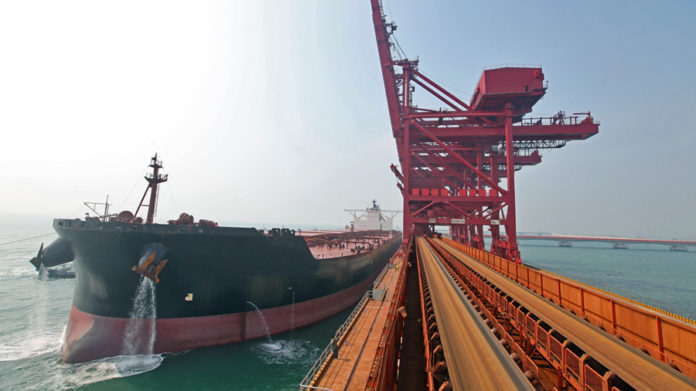
KROPZ, a phosphate mine development company, was investigating alternatives after government-owned transport utility, Transnet, said the company would not be able to use export facilities at its Saldanha Bay port.
There is an option to route a portion of phosphate, to be mined from Kropz’s proposed Elandsfontein mine, through the Port of Cape Town but this would be more costly, the firm said in an update today.
“Kropz and Elandsfontein management are investigating all possible solutions and discussions with Transnet are continuing,” it said.
Transnet, which is owned by the South African government, has come in for some criticism in recent months, especially from the country’s coal and manganese miners.
In March, Exxaro Resources said about two million tons of coal exports were “at risk” this year because Transnet Freight Rail (TFR) was having problems railing the coal to the Richards Bay Coal Terminal. The following month, South32 said its manganese shipments were 15% lower in the first quarter owing to ‘rail utilisation’ problems.
Kropz, in which Patrice Motsepe’s African Rainbow Capital (ARC) has a 47% stake, is also running into debt management problems.
It said today the strengthening of the rand had led to a shortfall in payment of a R680m convertible loan agreed with the company last year. At the time of the loan agreement, the rand was trading at R17 to the dollar compared to about R14 today.
The upshot is that Kropz has an R80m shortfall because it is receiving far fewer rands than it hoped it would receive. “Management is in the process of investigating alternatives for the funding of this potential shortfall,” the company said. The loan is payable in the fourth quarter of this year.
Kropz has led a difficult life since its launch in March 2018. The development of Elandsfontein was opposed by non-government organisations from the outset, an issue that was compounded by technical problems at the plant.
In 2019, ARC wrote down the majority of its investment in Kropz and Elandsfontein after having listed the company in London a year earlier, raising $35m in the process.
Phosphate is used in the manufacture of fertilisers and is considered essential for food security amid a growing world population. It is not alone in its development problems: other African fertiliser mineral companies – Danakali in Eritrea and Kore which is building a potash mine in the Republic of Congo – have run into problems of their own.
Commenting on the proposed commissioning of Elandsfontein, Kropz said today the development timeline was “tight” but that it remained on course. It was tackling a number of project streams simultaneously, acknowledging that a third wave of the Covid-19 virus in South Africa could represent a headwind.










